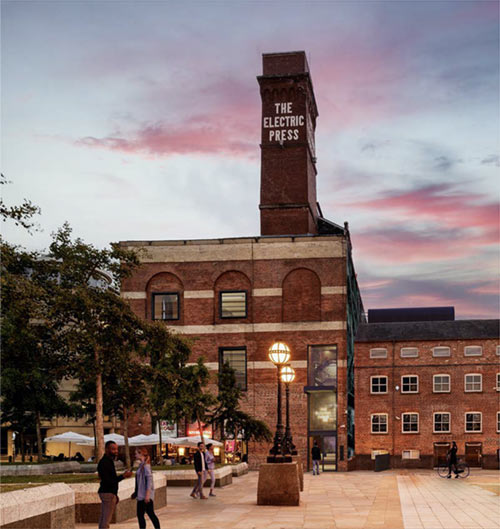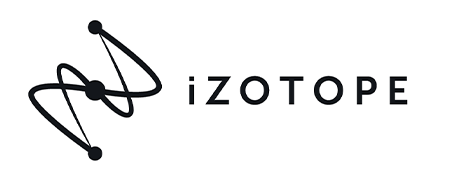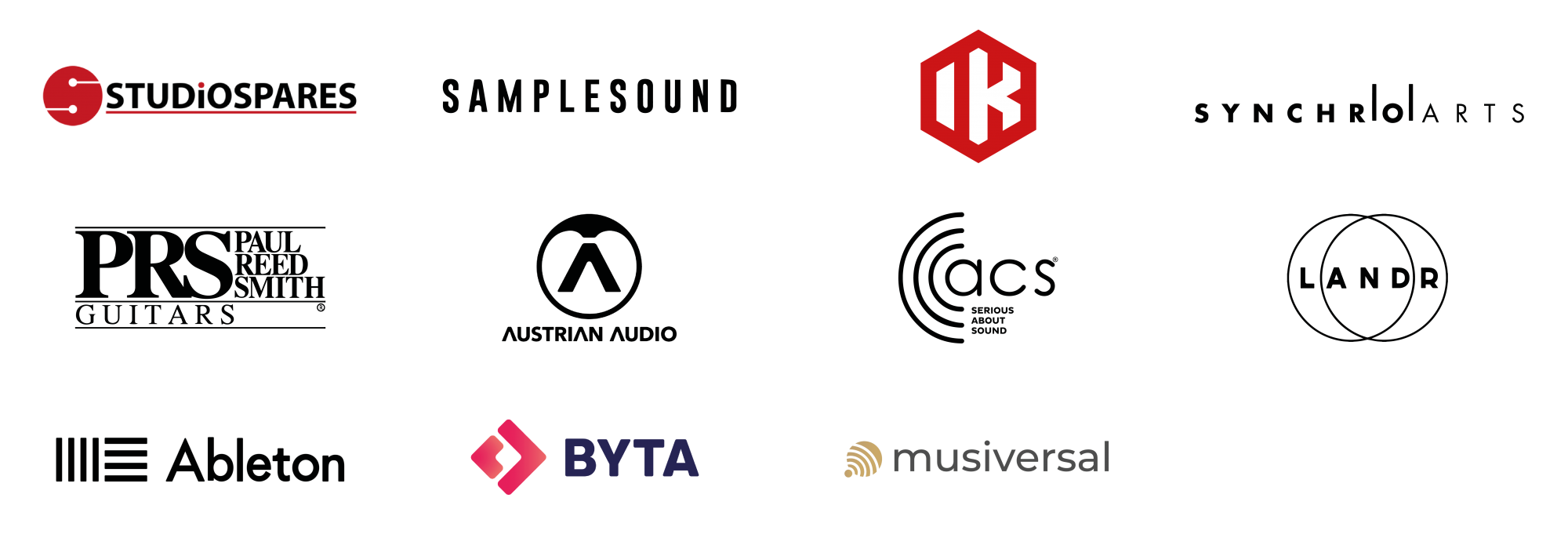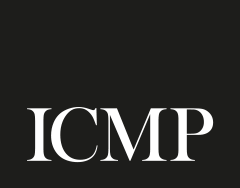Locations
Leeds
UCAS code
W100
Start date
15th September 2025
Course length
3 Years
COURSE OVERVIEW
The BA (Hons) Creative Music Production degree course is a thorough, well-rounded exploration of both the practical and theoretical aspects of music production, and has been specifically designed for creative artists and producers looking to launch a professional career in music production in Leeds, and beyond.
Across three years, our expert tutors – who are all successful music producers and musicians in their own right – will guide you through the exciting world of music production in the studio, live and digital music making settings.
You'll be taught in our brand-new Leeds campus, a three-floored creative media hub located in the iconic Electric Press building in Leeds city centre. The campus is currently under construction but is already shaping up to be an incredible and enviable facility featuring multiple recording studios, live rooms and creative media facilities, including a film studio!

You’ll begin your studies in our project studio – for dedicated use by first-year Creative Music Production students – where you’ll become familiar with industry-standard hardware in a modern studio set up, plus in-the-box (ITB) software and digital audio workstations (DAWs) like Pro Tools, Logic Pro and Ableton Live. You’ll create your own individual production style as you learn to record, mix and master your own creative music production compositions. In years 2 and 3, you’ll access ICMP’s larger state-of-the-art recording studios, getting to know a range of more advanced professional high-tech hardware and software.
Across each year of the course, you’ll learn to create, produce, launch and promote market-ready original music, while developing industry-relevant technical, music business, marketing and entrepreneurial skills, essential for today’s music producer.
Creatively, you’ll be pushed out of your comfort zone as you regularly compose and produce to brief, explore new styles and genres, and collaborate with the wider ICMP community – made up of both fellow music production students, and vocalists, guitarists, bassists, drummers, keyboard players and songwriters also studying at ICMP.
You’ll cover basic music theory and develop the ability to analyse and critique music from an academic perspective, while providing constructive feedback to your classmates. All areas of contemporary music will be explored, as you look at different cultures and evaluate how the music of the past continues to influence us today.
There will be plenty of chances to immerse yourself in the music industry via a series of real-world music business events, guest lectures, masterclasses and more, so you’ll leave ICMP with a solid understanding of how the music industry works and exactly what you need to do to progress your career in music production.
This course is sponsored by our industry partner:

Our supporting industry partners are:

Alongside generously sponsoring courses, rooms and providing equipment, our industry partners also offer ICMP music production degree students access to exclusive discounts, events and opportunities.
One significant benefit of being an ICMP student is that you can book our cutting-edge facilities for personal use free of charge outside of class hours, seven days a week, meaning you’ll have ongoing access to the very best music production kit. This includes ribbon, modelling and valve microphones, synthesisers, drum machines, controllers and loop stations, vocal processors and effects pedals, instruments, PAs, mobile recording rigs, writing rooms, studios and more.
A highly personalised course, you can tailor your studies and practical assessments to suit your interests and future career goals. With an ongoing focus on real-world activities, Creative Music Production degree students also have the opportunity to fulfil the role of Assistant Engineer in recording sessions at ICMP’s in-house studios and other external studio spaces.
Throughout your time with us, you’ll develop an impressive professional network thanks to our extensive music industry connections, in both London, Liverpool and beyond. Our dedicated music careers team will offer you a range of personalised opportunities and training, so you’ll graduate ‘career ready’ and be eager to prove yourself as a talented and highly knowledgeable creative music producer.
Fees & Funding
Taking a music production degree course at ICMP makes financial sense too, with the fees for ICMP music degrees the same as those at many traditional universities - making studying music at ICMP great value as well as great fun.
Course Fees: UK Students | EU/EEA/International Students
Please visit our Fees pages for information on access to Student Loans. Please note, students eligible for loans are able to borrow the full course fee for ICMP degrees, unlike some other UK music schools where students are required to pay additional top-up fees themselves.
Course Fees | Programme Specification | Programme Handbook
Click to view the full terms and conditions of applying to study at ICMP.

Successful completion of the BA (Hons) Creative Music Production course leads to the award of Bachelor of Arts degree by The Institute of Contemporary Music Performance.*
* Please note: ICMP Leeds courses are currently subject to validation.
Experience ICMP at our next
Leeds Open Day
Join us at Headrow House in Leeds to learn all about our exciting new Leeds campus. Learn more about this course, along with the many benefits of studying music production at ICMP!
Key facts
- Study professional music production as a producer and/or creative artist with this all-round recording and production degree.
- Learn to create, produce, launch and promote market-ready original music using DAWs such as Pro Tools, Logic Pro and Ableton Live.
- Develop artistically in music production, music technology, composition and song creation.
- Master recording in a professional music production environment using high-tech industry-standard equipment.
- Acquire the business, entrepreneurial, networking and life skills to build and maintain a career in music production.
- Get creative each week through regular collaboration with fellow student artists from ICMP’s rich talent pool.
- Opportunities to assist in sessions at ICMP’s in-house recording studio.
- Develop your creativity with an analytical, critical and contextual understanding of music production.
- Access career-focused artist development resources, designed to make you business ready as a music producer.
- Connect with the wider UK music industry to build an impressive musical network, in Leeds, London, Liverpool and beyond.
- Apply Now
UCAS CODES
- Course Code: W100
- Institution Code: i25
- View course on UCAS








